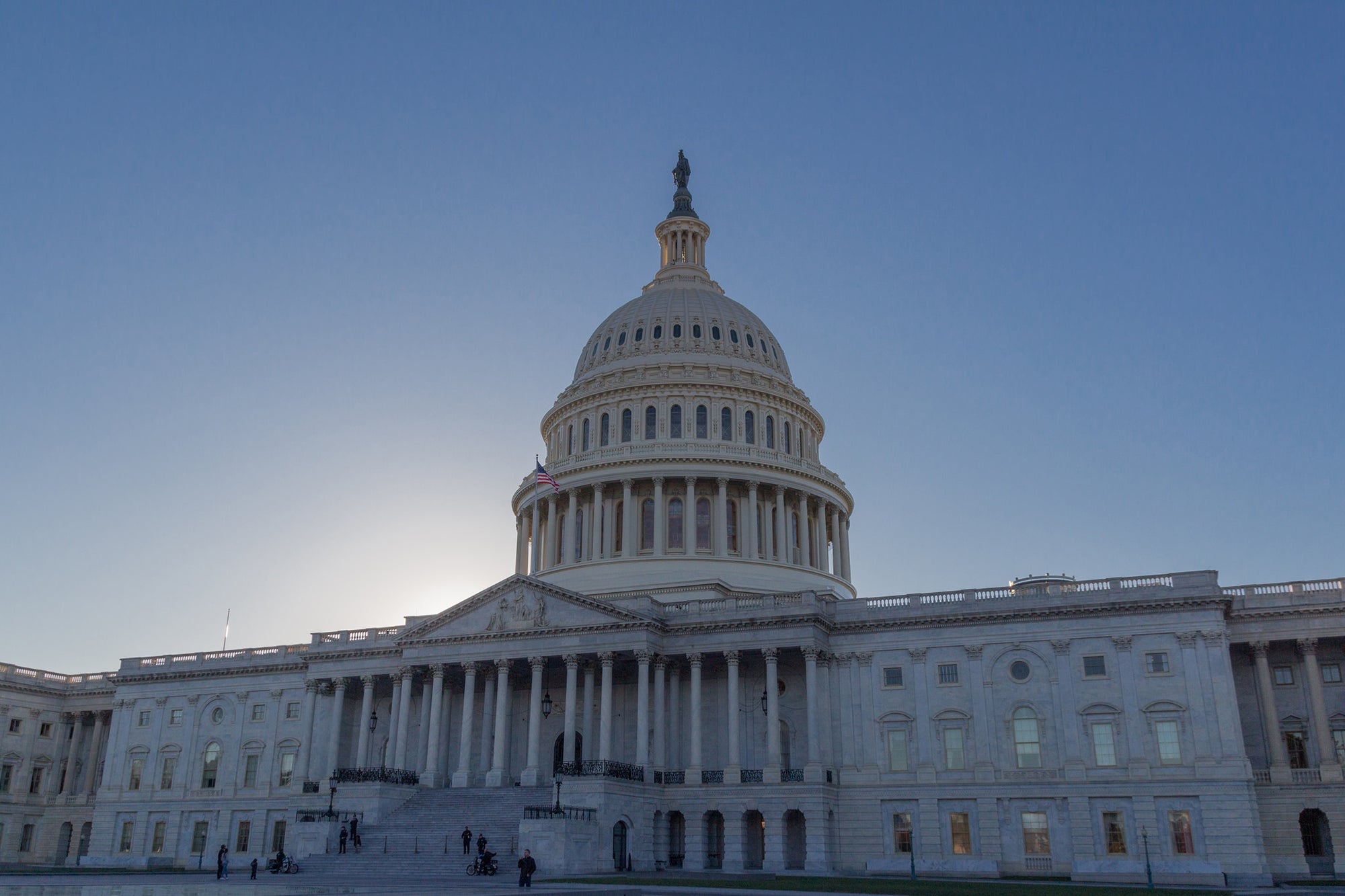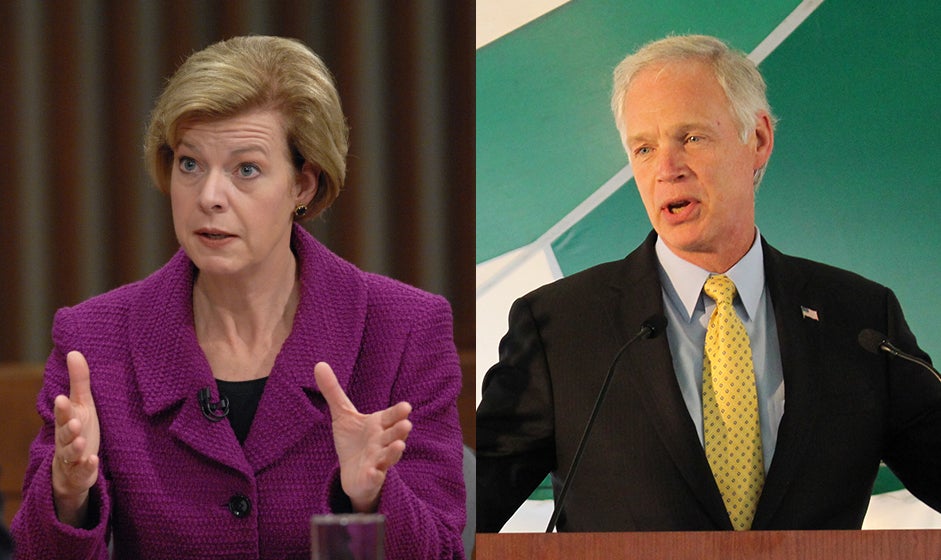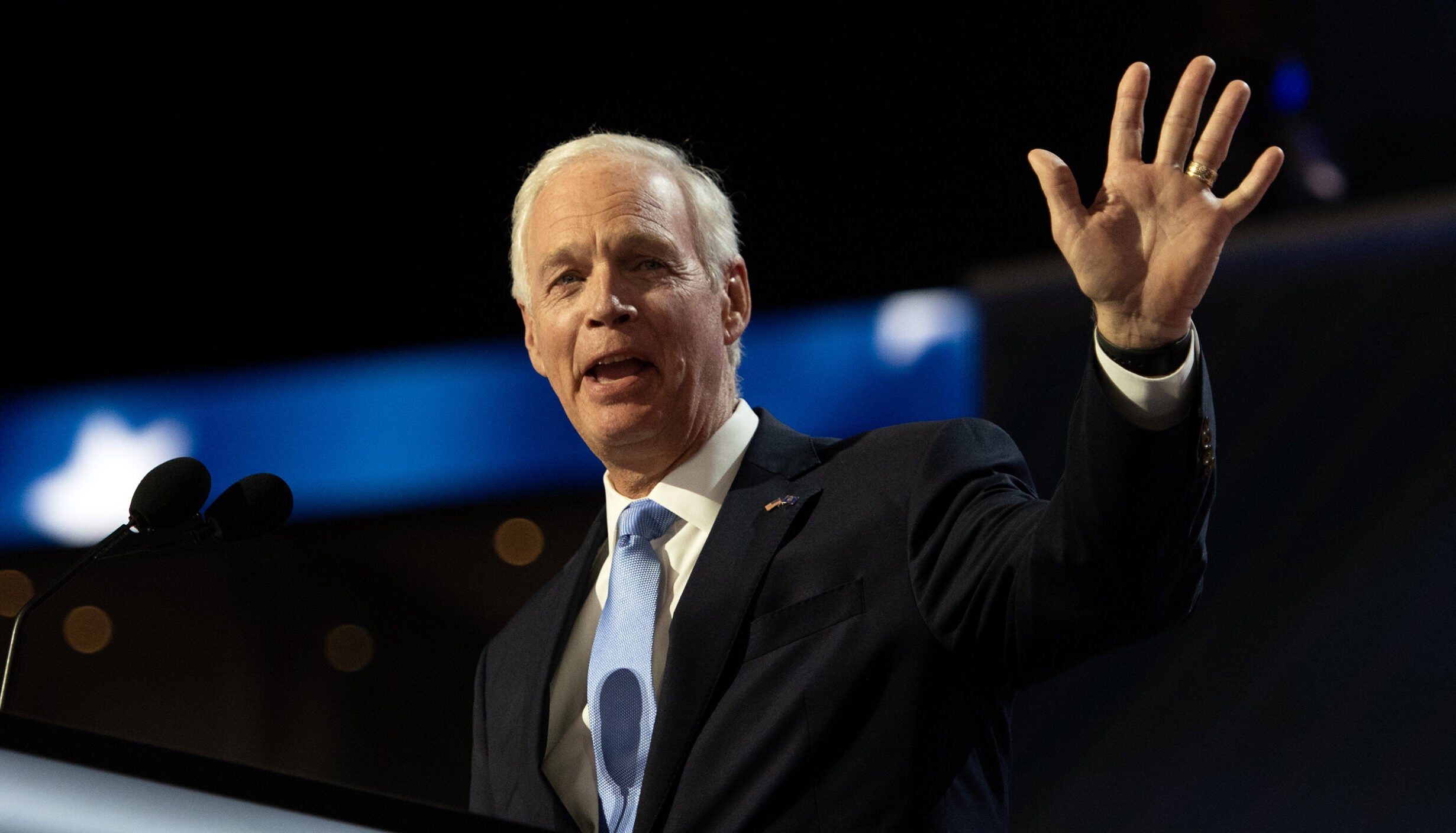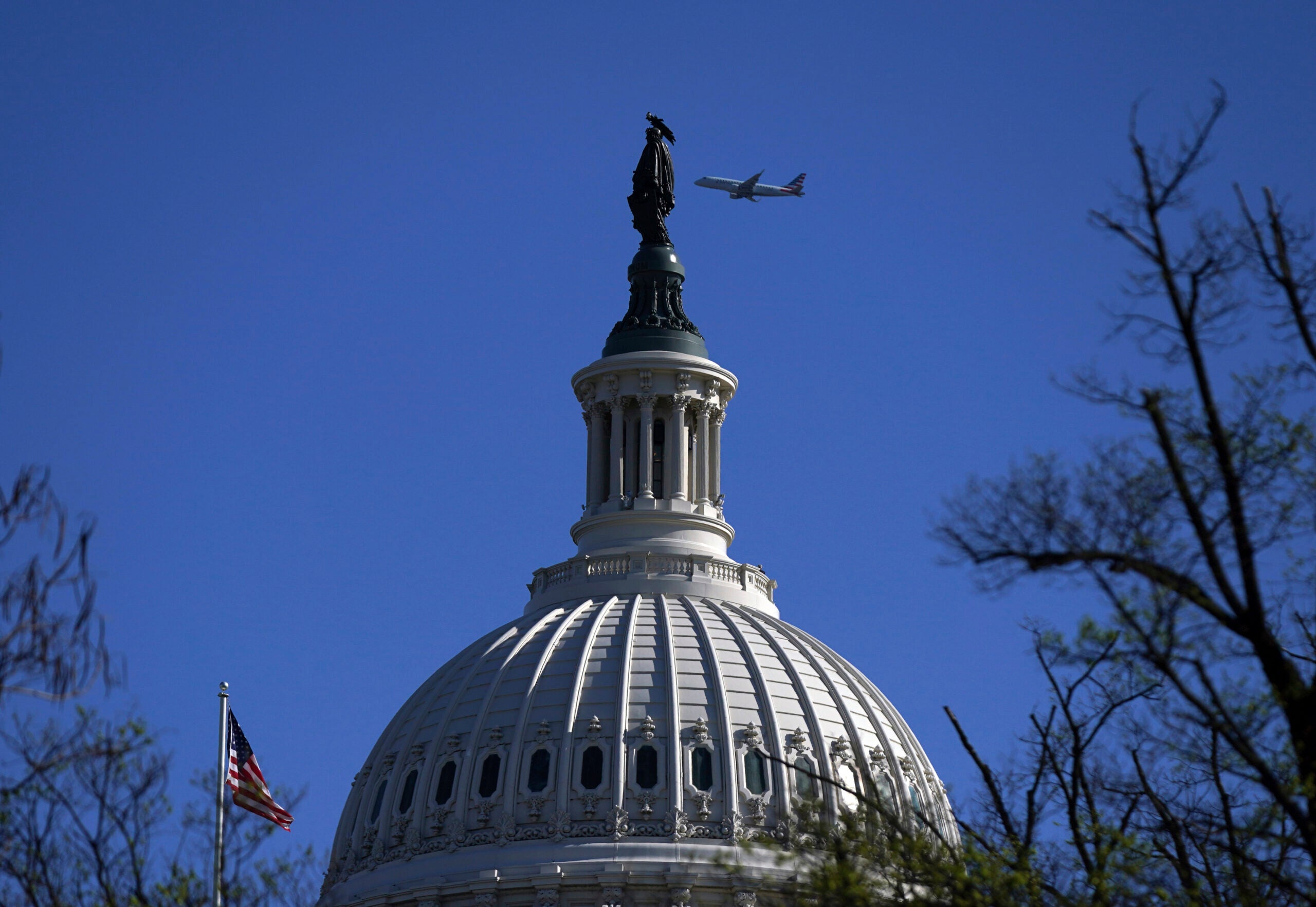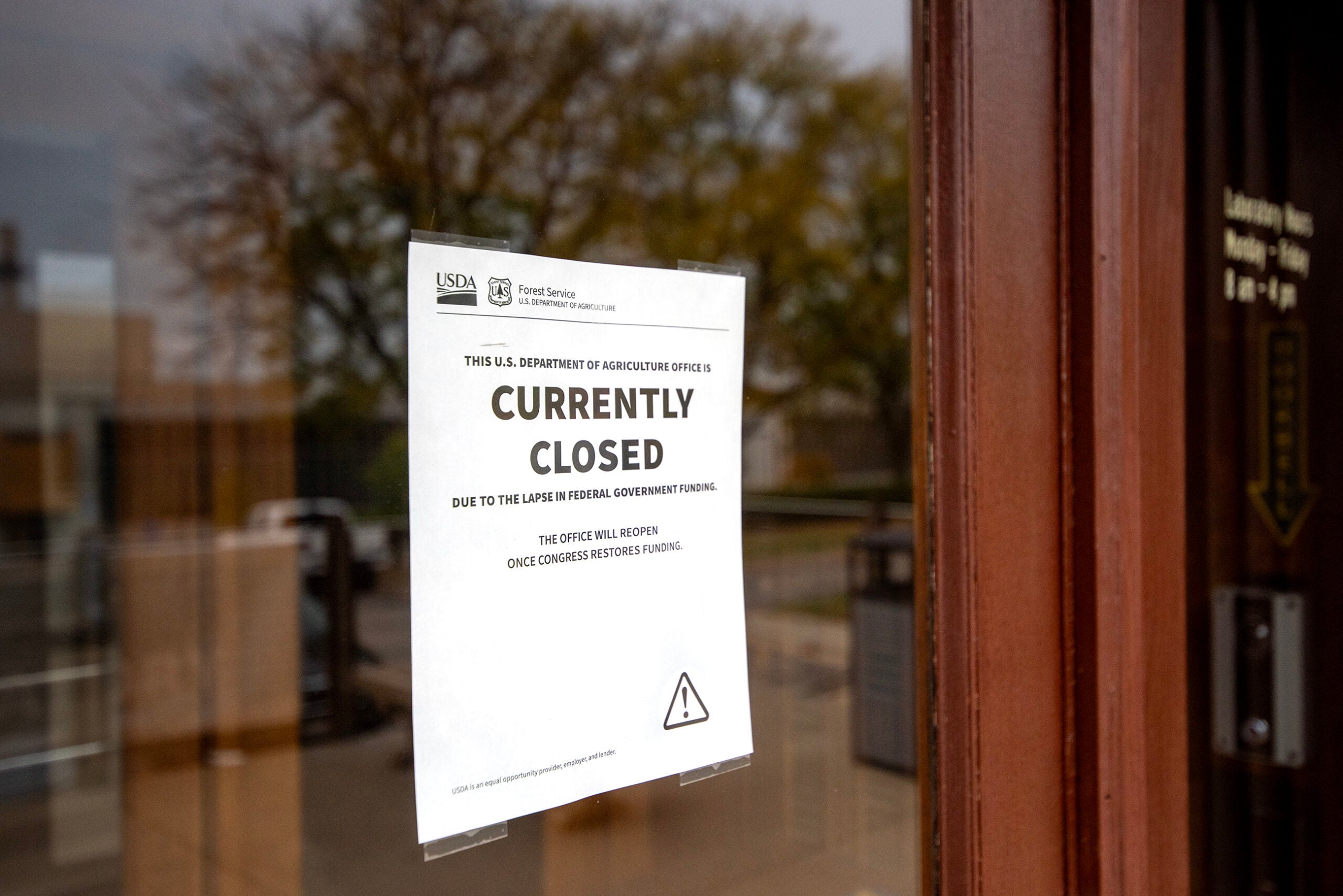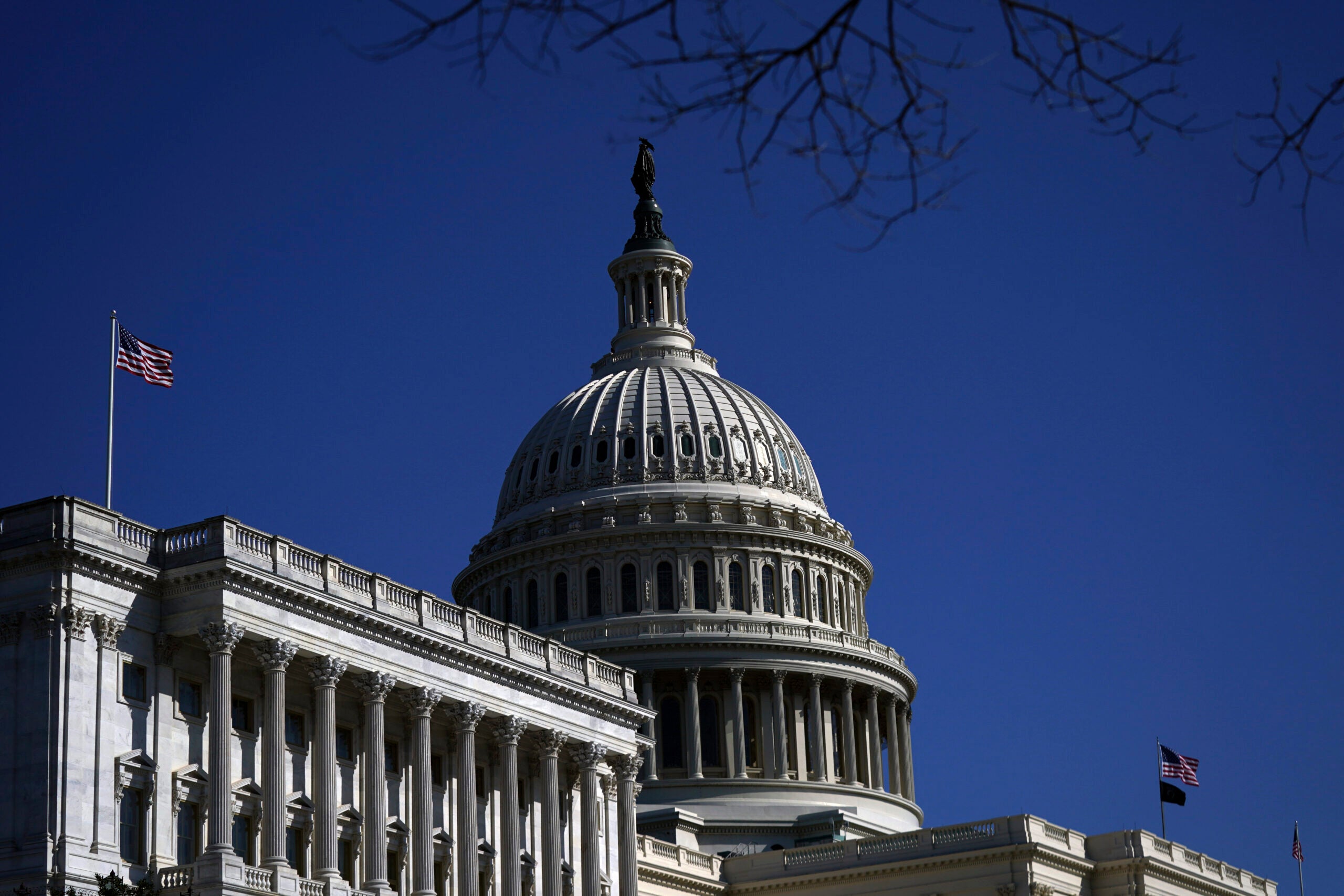Members of Wisconsin’s congressional delegation have introduced legislation to pay federal workers and contractors affected by the government shutdown as well as to make sure similar shutdowns don’t happen in the future.
During the month-long federal government shutdown, there were 426 federal workers in Wisconsin that applied for unemployment benefits. According to The Associated Press, there are more than 29,000 federal workers living in the state.
The shutdown ended Friday after President Donald Trump agreed to sign a three-week spending bill while negotiations on funding for a wall along the Mexican border continue.
News with a little more humanity
WPR’s “Wisconsin Today” newsletter keeps you connected to the state you love without feeling overwhelmed. No paywall. No agenda. No corporate filter.
While the shutdown standoff between the president and Democratic leadership in Congress drew familiar political contrasts, it also spurred bipartisan legislation from members of Wisconsin’s congressional delegation aimed at preventing a similar situation in the future.
Before the government was temporarily reopened, U.S. Sen. Ron Johnson, R-Wis., introduced a bill called the Shutdown Fairness Act that would authorize affected federal agencies to pay federal workers during negotiations. The bill set a Jan. 1, 2020 deadline for the authorization unless the agency is funded through a spending agreement first.
A press release from Johnson called withholding pay from federal workers while expecting them to report to work “unfair.”
“The least a dysfunctional Washington, D.C. can do is pay the people we are requiring to work during this shutdown to keep our nation and our homeland safe and secure,” Johnson said.
U.S. Sen. Tammy Baldwin, D-Wis., also co-sponsored a bill to secure back pay for low-wage federal contractors impacted by the shutdown.
While federal employees are assured back pay, companies doing work for the government via federal contracts don’t have the same guarantee. The legislation would reimburse contractors up to 200 percent of the federal poverty level for a family of four.
A press release from Baldwin’s office said there are thousands of contractors, including janitors, food service workers or private security contractors who went a month without pay from the federal government.
“Some of these workers are living paycheck to paycheck, and because of the shutdown can’t afford to pay their bills or support their families,” said Baldwin. “Majority Leader (Mitch) McConnell needs to bring this bill to the floor for a vote so we can make sure our federal contractor employees get the paychecks they need.”
The same day that the federal government reopened, U.S. Rep. Glenn Grothman, R-Glenbeulah, introduced a bill he co-authored with Democratic U.S. Rep. Dave Loebsack of Iowa that would essentially block future shutdowns from being used as leverage during policy disputes.
The End Government Shutdowns Act would take the federal government on a path similar to Wisconsin’s budget policies in that funding for agencies would continue automatically at prior year levels if Congress can’t agree on a spending bill.
Grothman said what works for Wisconsin would work for the feds.
“We’ve been doing that in Wisconsin since 1953 and it’s never prevented us from doing a budget within at least four or five months of the prior year,” Grothman said. “It is unfortunate that we don’t do that on a federal level.”
Grothman, who is a supporter of building a wall between the U.S.-Mexico border, said the bill would insulate federal workers while Congress hammers out details of future spending plans.
“Had we had that law on a federal level, well, some agencies might not have got the reduction or increase they were expecting,” said Grothman. “It wouldn’t have been anything dramatic that we had happen here.”
The bills introduced or co-sponsored by Wisconsin’s congressional delegates are still in the early stages of the legislative process. None have passed either the U.S. House of Representatives or the U.S. Senate.
Wisconsin Public Radio, © Copyright 2026, Board of Regents of the University of Wisconsin System and Wisconsin Educational Communications Board.

